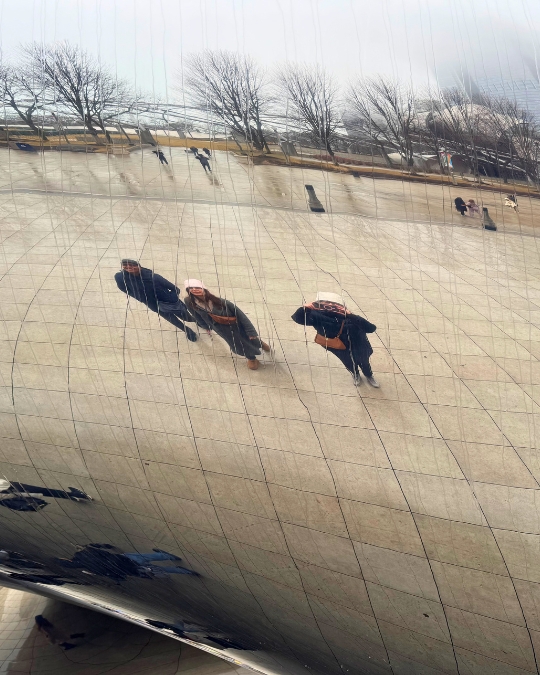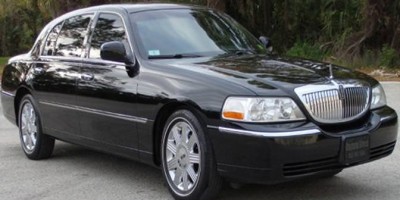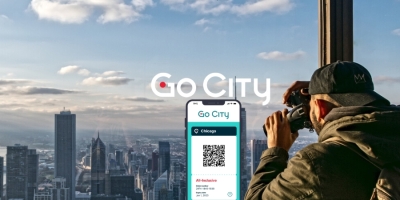Main Menu
-
Itineraries & Vacations
- Itineraries & Vacations
- BY TYPE
- Escorted Group Tours
- Road Trips in The US™
- BY INTEREST
- Route 66
- National Parks
- BY SPECIAL OFFER
- GIFT CARD
- Tours in Major Cities
-
Travel Guides
- Travel Guides MOST VISITED CITY
- New York City Guide
- TOUR GUIDES BY CITY
- Miami - Travel Guide
- Los Angeles - Travel Guide
- San Francisco - Travel Guide
- Las Vegas - Travel Guide
- Chicago - Travel Guide
- Washington DC - Travel Guide
- Boston - Travel Guide
- San Diego - Travel Guide
- Orlando - Travel Guide
- New Orleans - Travel Guide
- TRAVELING IN THE US
- Good to Know
- Lodgings
- Disney Travels™
Millennium Park & Shedd Aquarium: Top Chicago Attractions
Plan your visit to Top Attractions with ticket info, hours & directions. Categories: Chicago - Travel Guide - What to see
Index - Millennium Park & Shedd Aquarium: Top Chicago Attractions


- - Millennium Park: A Jewel in the Heart of Chicago
- - History and Development of Millennium Park
- - Map: Millennium Park Attractions
- - Cloud Gate: The Reflective Soul of Chicago
- - CLOUD GATE - PHOTO GALLERY
- - Jay Pritzker Pavilion: The Amphitheater of Art & Music
- - Clarence F. Buckingham Memorial Fountain: A Chicago Landmark
- - Shedd Aquarium: A Journey into Marine Life in Downtown Chicago
- - Explore more Chicago
Millennium Park: A Jewel in the Heart of Chicago
Located right in the center of Chicago, Millennium Park is one of those must-visit attractions that no visitor should miss. It offers a perfect blend of art, architecture, music, and urban landscape, while also housing some of the city's most significant monuments and landmarks.Inaugurated on July 16, 2004, Millennium Park quickly became a major gathering place in Chicago, providing visitors with an unparalleled cultural and recreational experience. It spans Michigan Avenue to the west, Randolph Street to the north, Columbus Drive to the east, and Monroe Street to the south, covering a vast area of more than 99,000 square meters (24.5 acres). The park is often considered an extension of Grant Park to the northwest.
History and Development of Millennium Park
The history of Millennium Park is a fascinating story of urban transformation and civic ambition. Before its creation, the area was occupied by Illinois Central Railroad tracks and surface parking lots, which physically separated downtown Chicago from the Lake Michigan waterfront. The idea to transform this space into a public park only emerged in the 1990s, with the goal of creating a park to celebrate the dawn of the new millennium—hence its name.Planning began in 1997, with an intended completion date of 2000. However, due to design modifications and rising costs, the park was only inaugurated in 2004. Initially estimated at $150 million, the final project cost reached a staggering $475 million, made possible through a combination of public funding and private donations. Despite the financial challenges, Millennium Park is now celebrated as a remarkable success in urban regeneration and innovative design.
This guide provides a concise overview for visitors who want to explore the park and discover its main attractions Each of them—Cloud Gate, Jay Pritzker Pavilion, Clarence F. Buckingham Memorial Fountain, and Shedd Aquarium —will be described in detail, including information on how to get there and potential entrance fees.
It’s important to note that Millennium Park itself is free to enter, although some museums and monuments within the park may charge additional fees.
Map: Millennium Park Attractions
Cloud Gate: The Reflective Soul of Chicago
At the center of Millennium Park stands the world-famous "Cloud Gate", affectionately nicknamed "The Bean" due to its distinctive bean-like shape. This renowned sculpture, designed by British-Indian artist Anish Kapoor, is one of the largest permanent outdoor art installations in the world.Unveiled in 2004, in conjunction with the opening of Millennium Park, Cloud Gate consists of 168 stainless steel plates, seamlessly welded together and polished to achieve its signature perfectly smooth and reflective surface. The sculpture measures 10 meters (33 feet) in height, 20 meters (66 feet) in length, and 13 meters (42 feet) in width, with an estimated weight of 110 tons. Its mirrored surface reflects and distorts Chicago’s skyline, the surrounding greenery, and visitors, making it one of the most photographed monuments in the world.
CLOUD GATE - PHOTO GALLERY



How to Reach Cloud Gate
By Car: Cloud Gate is located at 201 E. Randolph Street. Visitors arriving by car will find several parking options nearby, including Grant Park North Garage (25 Michigan Avenue), Grant Park South Garage (325 Michigan Avenue), and Millennium Park Garage & Millennium Lakeside Garage (5 Columbus Drive). While the destination is well signposted, it is recommended that visitors use GPS navigation for a smooth arrival from various points in the city.By Public Transportation: The park is easily accessible via multiple bus and train lines, which can also help save on parking costs. The CTA bus lines stopping nearby include 3, 4, 20, 60, 124, 151, and 157. If traveling by train, the nearest station is "Millennium Station," just a short walk from the park.
Costs & Hours
Great news: Access to Cloud Gate and Millennium Park is always free for both residents and visitors. The park is open daily from 6:00 AM to 11:00 PM, while the Welcome Center (where you can find tourist information) operates from 9:00 AM to 5:00 PM.Jay Pritzker Pavilion: The Amphitheater of Art & Music
Designed by renowned architect Frank Gehry, the Jay Pritzker Pavilion is an open-air amphitheater and the musical heart of Millennium Park. With its distinctive stainless steel structure, the pavilion blends innovative design with impeccable acoustics, ensuring an outstanding auditory experience.The Pavilion can accommodate up to 11,000 guests, featuring 4,000 fixed seats and additional space for 7,000 people on the surrounding lawn. Visitors interested in concerts, festivals, and cultural events hosted here throughout the year can check the official Jay Pritzker Pavilion website or visit local tourism offices for more details.
How to Get to Jay Pritzker Pavilion
By Car: Located inside Millennium Park at 201 Randolph Street, the pavilion is best accessed by reserving a parking spot in advance, especially during events. Nearby parking options include Millennium Park Garage and Grant Park North Garage.By Public Transportation: The closest subway stations are "Washington/Wabash" and "Lake" (serving the Red, Orange, Brown, Pink, and Purple Lines).
Events at Jay Pritzker Pavilion: Costs & Hours
Some events at the Jay Pritzker Pavilion are free and open to the public, while others require reservations and ticket purchases.Clarence F. Buckingham Memorial Fountain: A Chicago Landmark
The Clarence F. Buckingham Memorial Fountain is located in the heart of the park and is one of the largest fountains in the world—a true symbol of Chicago, along with Cloud Gate. Dedicated in 1927, the fountain was donated by Kate S. Buckingham in memory of her brother Clarence and was designed by architect Edward H. Bennett.Its design is inspired by the Latona Fountain at the Palace of Versailles in Paris. The fountain features four groups of sea horses representing the states surrounding Lake Michigan: Illinois, Wisconsin, Michigan, and Indiana.
Visitors can enjoy hourly water displays, with impressive jets reaching up to 150 feet (45 meters) high. After sunset, the fountain is illuminated with choreographed lights. Typically, the fountain operates daily from 8:00 AM to 11:00 PM from early May to mid-October, depending on weather conditions.
How to Get to Clarence F. Buckingham Memorial Fountain
By Car: The fountain is located near Millennium Park at the intersection of Congress Parkway and Columbus Drive (301 East). Recommended parking options include Millennium Park Garage and Grant Park South Garage.By Public Transportation: The fountain is easily accessible by bus and train. The CTA bus lines stopping nearby include 1, 3, 4, 7, 26, 28, 126, and 151. For those taking the subway, the nearest stations are "Jackson" (Red Line) and "Harold Washington Library" (Brown, Orange, Pink, and Purple Lines), both within walking distance.
Clarence F. Buckingham Memorial Fountain: Access & Hours
Admission to the Clarence F. Buckingham Memorial Fountain is always free. Visitors interested in the water shows should check the official Chicago Park District website, as schedules may change during events and concerts.Shedd Aquarium: A Journey into Marine Life in Downtown Chicago
Opened in 1930 near Millennium Park, Shedd Aquarium is a must-visit attraction in Chicago, perfect for visitors of all ages. It is one of the world’s largest and oldest indoor aquariums, home to over 32,000 aquatic animals. The aquarium offers stunning recreations of marine habitats, ranging from tropical waters to the icy polar regions, making it both an entertaining and educational experience.Among its most popular attractions are the Abbott Oceanarium (featuring beluga whales, dolphins, and sea otters) and the Wild Reef (offering an up-close view of sharks swimming in a coral reef setting). In addition to its exhibits, Shedd Aquarium is committed to conservation and education, providing interactive programs and themed exhibits that raise awareness about marine life and its preservation.
How to Get to Shedd Aquarium
By Car: Shedd Aquarium is located at 1200 Lake Shore Drive. Visitors arriving by car can park at the North Garage of Soldier Field, with rates starting at $25.By Public Transportation: The aquarium is easily accessible via CTA bus lines 130 and 146, which provide direct service to Museum Campus. Additionally, the "Roosevelt" subway station (Red, Orange, and Green Lines) is about a 15-minute walk away.
Shedd Aquarium Admission: Ticket Prices
Unfortunately, free entry is only available for supporting members. For non-resident visitors, Shedd Aquarium offers the following ticket prices:General Admission Ticket:
- Adults: $39.95
- Children (ages 3-11): $29.95
Enjoy your visit to Millennium Park and its incredible attractions!
Explore more Chicago

Visit the largest green space, home to top attractions. Ticket info, hours & directions.
Categories: Chicago - Travel Guide - What to see

Categories: Chicago - Travel Guide - What to see

From tornado simulations to WWII submarines, the museum offers captivating insights into science and technology for all ages
Categories: Chicago - Travel Guide - What to see
We are your
local Tour Agency
in New York City
local Tour Agency
in New York City
Tailored Vacations
Secure Bookings
Your peers love it!
Your vacation, your way!
Free cancellation
BECAUSE IT'S OKAY TO CHANGE PLANS
Planning a vacation shouldn't be stressful. We all know plans might change, that is why we offer free cancellation for most of our services and tours. *
*exclusions may apply, please refer to each tour.
Planning a vacation shouldn't be stressful. We all know plans might change, that is why we offer free cancellation for most of our services and tours. *
*exclusions may apply, please refer to each tour.
What They
Say
Say
Devonnec770 | TripAdvisor
I’m the biggest fan of Fall activities, but haven’t had a chance to do anything beyond Apple Picking in NJ. I decided to take a last minute 2 day trip with a friend in Hudson Valley, but didn’t know where to start [...] Thankfully I was able to use New York Welcome to do the hard work for us [...]
From TripAdvisor - October 2021
Breanna A. | TripAdvisor
Irene was a FANTASTIC tour guide! She was so knowledgeable about the area and was so patient with all our questions. We stopped to use the bathroom and we got coffee halfway through, she was so kind! It was a pleasure learning about Brooklyn from you!
From TripAdvisor - April 2022
Keep in contact
Subscribe to our "New York x USA Welcome" Newsletter to receive Tips & Special Offers to help you plan your travels in the US!
Chicago PASSES
Chicago Transfers
Chicago Information
Sightseeing & City Tours in Major Cities
- Brunch Cruise, Champagne & Live Music in San Francisco
- San Francisco Grand City Tour & Escape from the Rock Bay Cruise
- Escorted City Tour and Universal Studios entrance Ticket in LA
- 1 Day tour to Solvang, Hearst Castle and Santa Barbara from LA
- Chicago CityPASS
- Whale Watching Cruise in The Boston Bay
Escorted Group Tours - Traveling in The US with a Group
Private Transfer in Major Cities
Our Destinations in The USA
The US - Good to know
Our Company
Office















